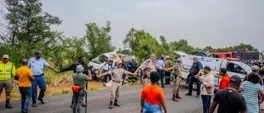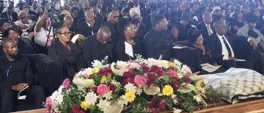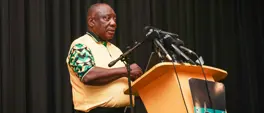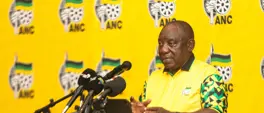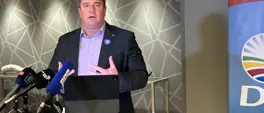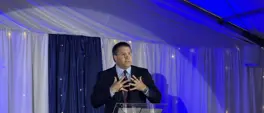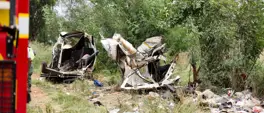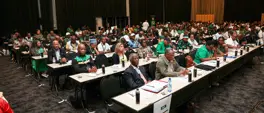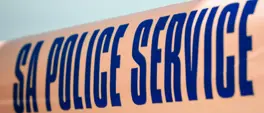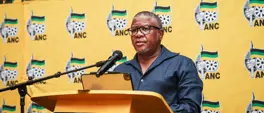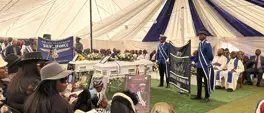Beyond the song: What is the relevance of 'Kill the Boer' in South Africa today?
Sara-Jayne Makwala King
28 May 2025 | 8:00Social justice activist Pastor Nigel Branken says the focus on the controversial song distracts from deeper issues of inequality in South Africa.
CapeTalk's Lester Kiewit is joined by Pastor Nigel Branken, a social worker.
Listen below:
The song 'Dubul’ ibhunu', from which the phrase 'kill the boer' comes, is back in the spotlight again.
A clip of EFF leader Julius Malema singing the song was played in the Oval Office at the White House last week.
US President Donald Trump tried to use the footage as evidence that there is a genocide of white farmers in South Africa.
There have been calls for the song to be outlawed despite the highest courts in the land ruling that it does not constitute hate speech, nor is it a 'call to action'.
Branken believes that we are focusing too much on the song when we should be prioritising issues such as social inequality.
He explores the meaning, context and relevance of the song in his recent piece for Media for Justice.
ALSO READ: Time to kill 'Kill The Boer' in the current global political climate?
"What I was really arguing is that it still has relevance today."
- Nigel Branken, social worker
Last year, the Supreme Court of Appeal confirmed that the song can’t be considered hate speech.
The Constitutional Court upheld the judgment earlier this year.
"Julius Malema gave his testimony. He said, 'I didn't mean it as literally killing white people or farmers, I meant it as talking about the system.'"
- Nigel Branken, social worker
The term 'boer' has come to be accepted as meaning the system of white supremacy, says Branken.
He says AfriForum tried to argue that the song was a call to action to Black people to kill whites.
"The court found no credible evidence of that."
- Nigel Branken, social worker
ALSO READ: Real vs 'fake' racism: Clinical psychologist delves into the complexities of racism
Branken says the focus for South Africans, particularly white South Africans, should rather be on transformation and moving beyond the vestiges of apartheid.
"We need to disrupt these systems. We're 30 years into our democracy; we're still the most unequal country in the world."
- Nigel Branken, social worker
"We still continue to have land predominantly in the hands of white people."
- Nigel Branken, social worker
ALSO READ: Who Is Pieter Kriel? Meet the 21-year-old stirring South Africa’s politics
Scroll up to listen to the full conversation from Good Morning Cape Town.
Get the whole picture 💡
Take a look at the topic timeline for all related articles.
